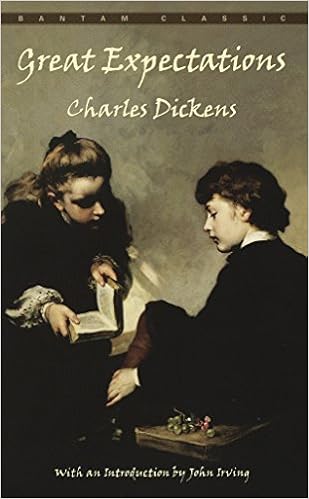
Dickens has been accused of being sentimental at times, and he certainly knew what his audience expected. Shakespeare wrote for his audience too, so that is not a bad thing- Dickens was also able to serialize his writings, and get feedback and tweak the next installment. Some characters are weak, such as Lucy, and I am not entirely sold on Dr. Manette's condition, but this is long before there was any great understanding of mental conditioning so I assume he got the idea from actual cases. Some of his characters are what was expected of his readers, such as Ms. Poss, Lucy's governess- a stout British Bulldog. Jerry the grave robber is another, a wonderfully comic one. Sydney Carton is a fun character, sort of an early Holmes prototype given to lots of drinking and self loathing, setting him up for his eventual rebirth. There are lots of great scenes, such as the plotting by the Jacques society, the storming of the Bastille, the unexpected twist at the French tribunal that sent Dr. Manette back into his funk- lots of good stuff. There are far too many coincidences for a modern reader but Dickens wasn't writing for the ages, he was writing for a living, breathing audience that expected to be entertained and shocked but not scandalized or bored.
Now we come to the greatest chracter- at lease to my mind- of any great writer. Madam Defarge is the villain to match any in fiction. With her constant knitting- knitting a death list of her enemies into the design- she is ruthless and determined to not only exterminate all the nobility that have let the country become a multitude of desperate, starving people but righting her own wrongs, down to the children of any line that happens to have crossed her in any way. She is humorless, determined, and will shoot you and hack off your head for a pike if you get in her way. The Evrémondes are her prime targets, and Dickens helps here by making the Marquis somebody we don't mind seeing murdered in his sleep. His nephew is a prime character, and even though he, like Lucy, seems too good to be real, he is the counterpoint not only to his Uncle, who not only supports the abusive policies of the nobility but intends to pursue them with even greater brutality, but to the mindless exterminations of the Revolution, where being a noble was enough to warrant death. Dickens shows that the nobility brought themselves to that point, but that the Republic was less brutal.
Remember when you read that this was a balance of great writing with a bit of serial cliffhanger, and you can almost feel what it must have been like, waiting for the next installment of a great old story.
No comments:
Post a Comment